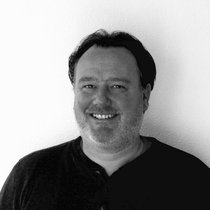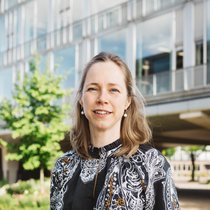At AMS Institute, we are proud to have about 20 Research Fellows in our community. Our Research Fellows - from our founding universities Wageningen University & Research, Delft University of Technology, and Massachusetts Institute of Technology - are ambitious researchers contributing to the development of sustainable solutions for urban challenges.
They help to set the agenda and develop and valorize the upcoming research and innovation portfolio while involving their colleague researchers and teachers at the founding universities, as well as several other academics and related universities.
Research Fellow Writers Retreat 2022
“It was really great to meet each other as a group, and to see the diversity, complementarily and most of all, the joint passion for contributing towards more liveable and sustainable cities!”
Eveline van Leeuwen
Scientific Director
Interdisciplinary collaboration to better tackle urban challenges
After lockdowns and mainly working from home, the Research Fellows could finally meet and work together in person. During a 'Writers Retreat', they had 3 days to take time to get to know each other and to talk about research, impact, and personal motivations.
Besides their own research, within their field of expertise, the Research Fellows also work on 3 collaborative projects. Thus combining forces, knowledge, and networks to come up with innovative ideas that contribute to a sustainable city. The group formed these three projects at the beginning of this year, during this retreat the first plans were further elaborated.
AMS CITY
- How can we use the technological research capacity of AMS Institute to guide the design of sustainable future neighborhoods? This project maps challenges, opportunities, and visions to generate solutions based on Marineterrein as a case study for future neighborhoods.
Left Over Green Spaces
- How to make the best use of left-over green spaces in the city? In this project, the Research Fellows look at how residents can be given tools to (temporarily) use the left-over spaces in their area.
Sensing Happiness
- What is the relationship between the well-being of residents and (well-being of) the green space? MADE Living Lab Happy Trees Monitor is part of this project: how do we measure and map the 'well-being' of trees and is there a relationship between the well-being of residents and the well-being of trees?
“Personal relationships are important for interdisciplinary collaborations. Do we really understand each other? Where is the synergy in our different perspectives and approaches? The retreat has laid a foundation for fruitful collaborations.”
Anke de Vrieze | Research Fellow | AMS Institute & WUR
Non-linear thinking to develop solutions for complex challenges
During this 3-day event, the group was challenged to think in a non-linear manner. To illustrate, linear thinkers often view a problem as a process with a set starting point that follows a sequence of connected series, ultimately leading to a solution. Why? In short, the human brain likes simple 'straight lines' - A follows B follows C. Therefore, most people break down issues based on structure, predictability, and consistency.
However, when you consider the complexity involved in developing solutions for urban challenges, it is key to observe the challenge from a creative and diverse point of view. Therefore, during the Writers Retreat, the group went to the Kröller-Müller Museum for an Arts-based Learning workshop led by Philippa Colin (researcher at Inholland University of Applied Sciences).
Part of the workshop was to each take half an hour to 'simply' observe a piece of art that called one's attention extensively and take notes. After this, the assignment was to write a short story about this artwork and see what comes up. The result: unexpected insights, new learnings about co-workers, and realizing how there are more ways to approach a topic other than using the more common rational, cognitive methods researchers are used to in the scientific environment.
Science is not just about research
Also, working together in science is not only about doing research. The Research Fellows learned to make visualizations that can be of great support in the thinking process, collaboration, and communication. This removed the barrier to drawing and it showed the added value of drawing for interdisciplinary collaborations.
In drawing abstract concepts such as 'research' and 'data' it appeared that things are understood differently. That was a good starting point for conversations and building mutual understanding.
“The workshop Visual Thinking was a great ice-breaker. Everyone had to get out of their comfort zone a bit, which also resulted in a lot of cheerfulness.”
Michel Handgraaf
Former Associate Professor & AMS PI at AMS Institute

Job opportunity: Postdoc climate resilience action research on urban living labs
Do you share our mission of 're-inventing cities' and want to join this ambitious group of Research Fellows to work on solutions for the city’s urban challenges? As part of the RED&BLUE research project, we have a Postdoc position available.
In short, the research consortium is committed to finding scientific and practical solutions to mitigate climate risks and to keep urban deltas liveable and prosperous. As such, scientific research is interwoven with two urban living labs which build on use cases of the stakeholders. The living labs are Greater Rotterdam and Greater Amsterdam.
The postdoc position focuses on the scientific substantiation of the action research in setting up, coordinating, and monitoring the living labs. Read more about the vacancy here >>
